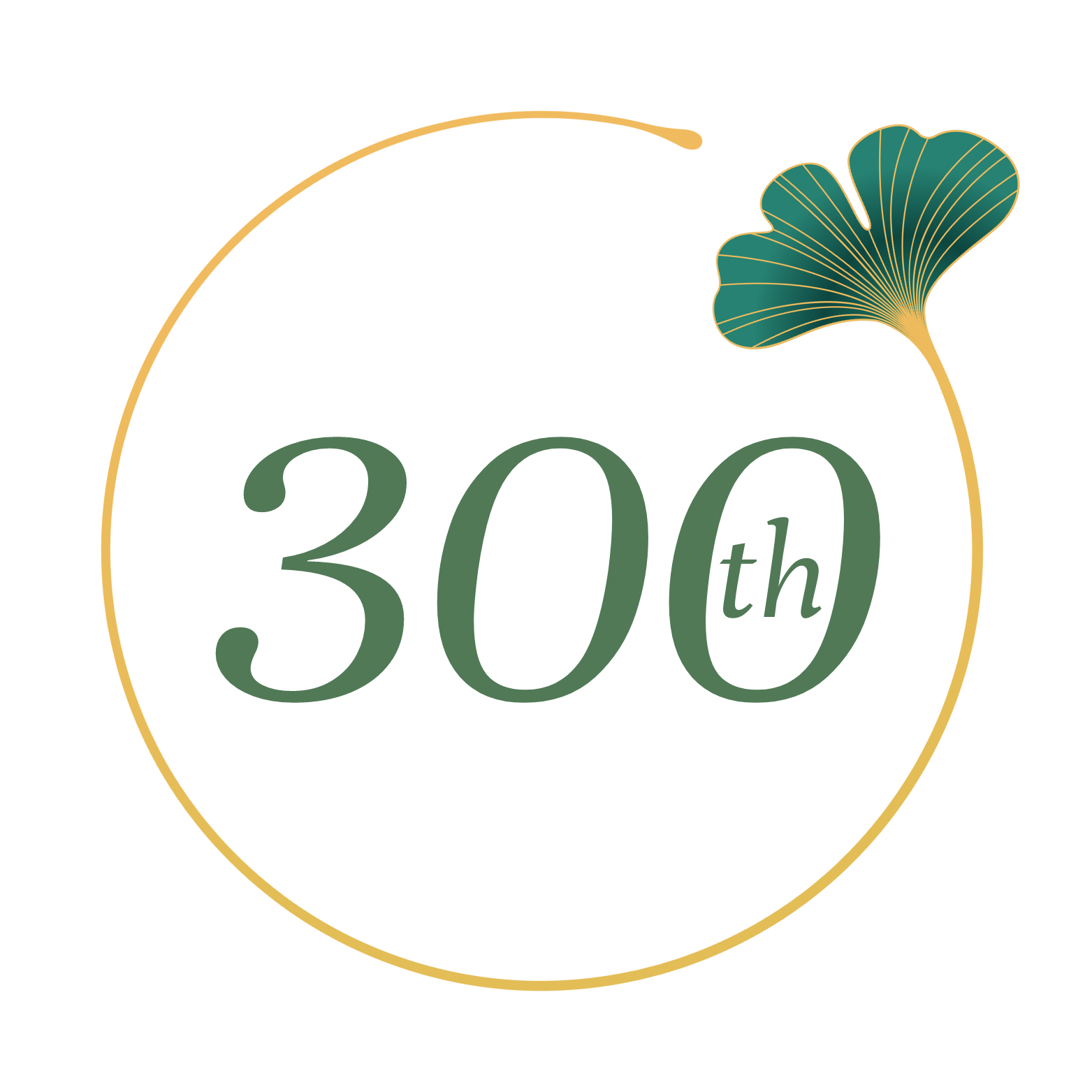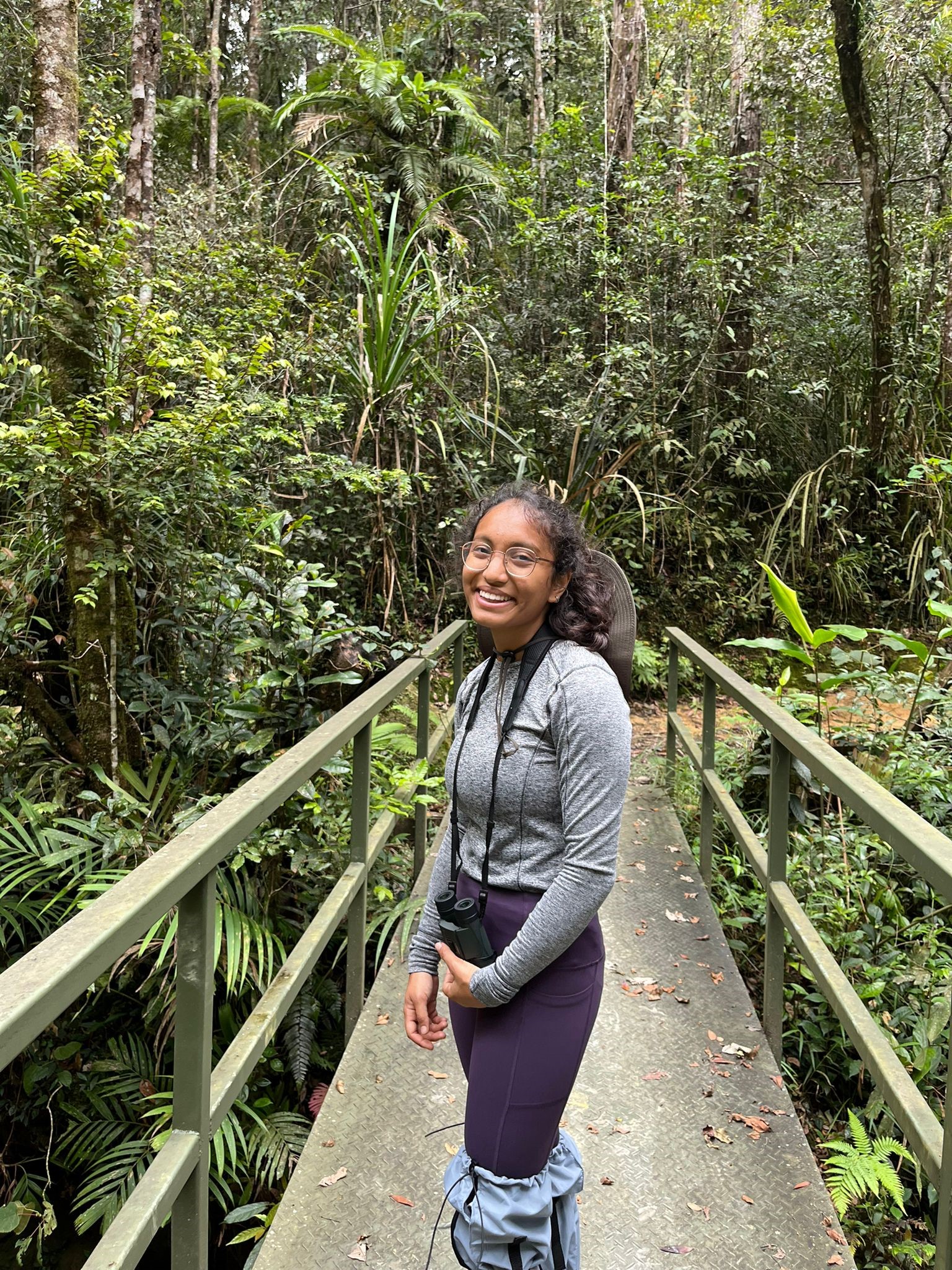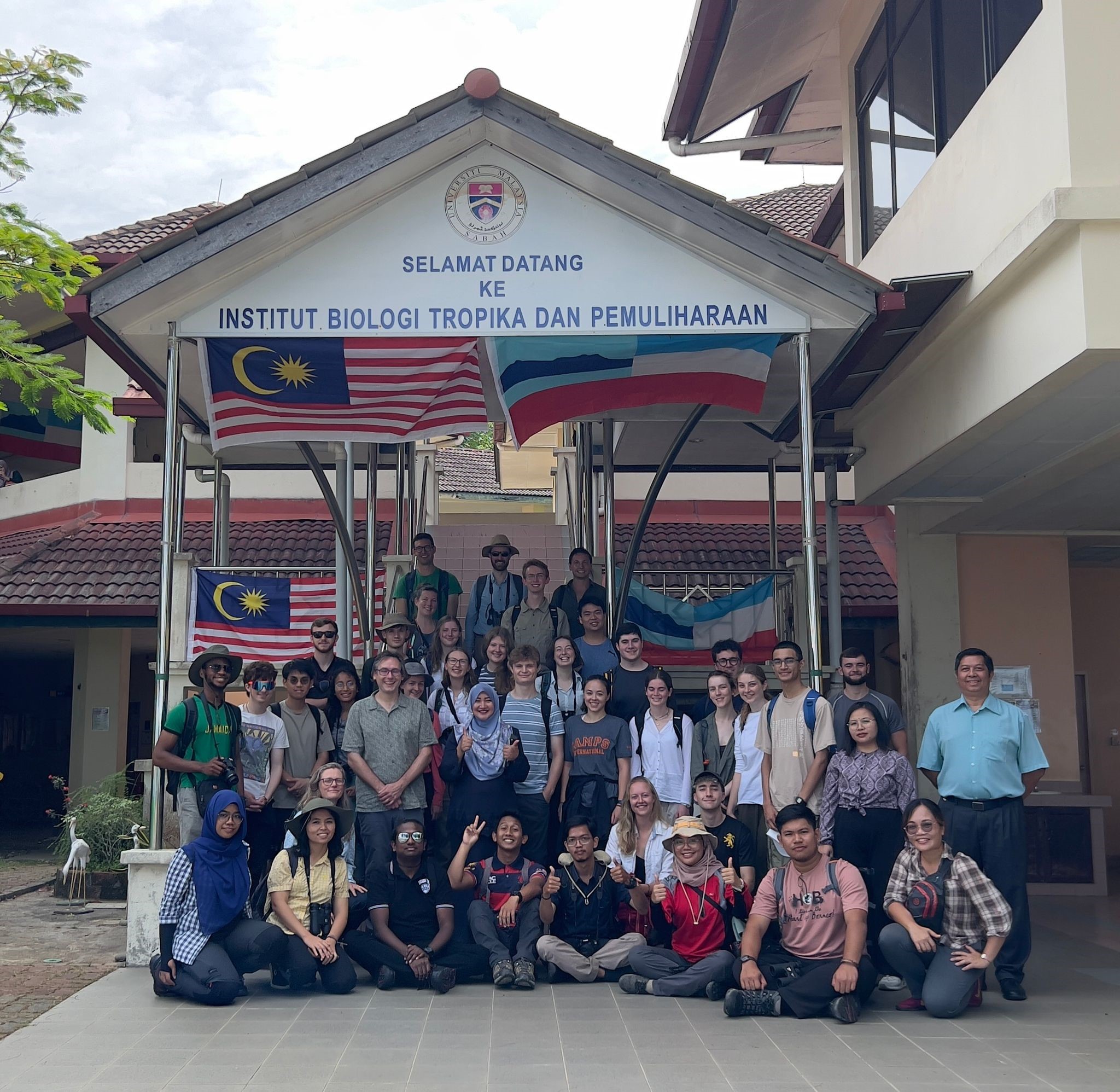As part of our celebrations to mark 300 years since the appointment of the first Professor of Botany, we wanted to highlight how we are supporting the next generation of plant scientists and share how you can get involved.
Students have a chance to attend a two-week tropical ecology field course, run jointly between the Departments of Plant Sciences and Zoology. This enables our students to develop a proper understanding of, and enthusiasm for, the biodiversity and conservation of the planet — crucial for ecologists of the future — and to carry out their own week-long research project.
Read Sudina's story to find out about her experience on the Borneo field course.
Name: Sudina Thapa
Graduating year: 2024
Degree: Natural Sciences
College: Christ’s College
Why did you want to go on the field course?
I wanted to join the field course because, despite living in South Asia for the first six years of my life, I had never had the opportunity to visit a rainforest. Previously, much of the conservation I had learnt about first hand had been focused in the UK. Western Europe presents a conservation dilemma since it has a long history of human-driven land use change, so traditional conservation here focuses on encapsulating agricultural features in landscapes. While the Malaysian archipelago also has a long history of cultivation, I was interested in comparing the more recent, shorter term intensification and expansion of productivity. The socioeconomic context of the two regions also differ greatly, with Malaysia experiencing a population boom and the increasing presence of private corporations which has consequences for conservation efforts.
What was the importance of plant sciences on the field course, and the benefit of attending with zoologists?
Plants make up the largest component of visible diversity in the rainforest. A third of Borneo’s flora is endemic and it is famous for its carnivorous pitcher plants, rare orchids and parasitic Rafflesia. Yet without understanding the roles of plants, it is not possible to understand the full dynamics of the rainforest ecosystem. A course with plant scientists and zoologists in Borneo not only improved our identification skills, but also enabled more discussion about plant-animal interactions. I also think it is vital to understand the context of conservation better. Dr Charlotte Wheeler represented the Department of Plant Sciences as a course leader; her PhD had been based on work in the Danum Valley Conservation Area in Borneo. This expertise provided insight into the effects of deforestation and the different restoration approaches in the region.
What five amazing things did you learn on the course?
1. Palm oil plantations do not need to be the monoculture, "green deserts" that they are portrayed to be if combined with low pesticide application, not spraying herbicides onto bark and intercropping in rows.
2. Blast fishing - using explosives to kill fish - is regularly reported in marine protected areas.
3. Borneo’s ironwood (Eusideroxylon zwageri) is the heaviest, hardest and most valuable timber on the island. The trees can live for over a thousand years and grow extremely slowly. Consequently, the wood is so hard and dense that it doesn’t float on water and termites can’t bite through it.
4. There can be more orangutans (Pongo spp.) in logged forests than in unlogged forests, but there are fewer gibbons (Hylobates spp.) because they rely more on movement through the canopy.
5. The helmeted hornbill (Rhinoplax vigil) is critically endangered because of poaching for the “red ivory” of its beak.
How will the course help you achieve your academic goals and your career aspirations?
My Part II project was inspired by the fieldwork I did in Borneo. My project aimed to verify the accuracy of LiDAR GEDI (a laser satellite technology) data on canopy height in the region. This involved going off-path to LiDAR sites and measuring the canopy height using a hypsometer. I was aided by my project partner, my supervisor and a local research assistants. In doing so, I was introduced to the work of the Coomes group who specialise in forest ecology and conservation, and have extensive experience in remote sensing technologies.
Would you have been able to attend the course without financial support?
I would not have been able to benefit from this experience without grants from the department as well as a travel grant from my college to cover some of my costs. This financial support meant I was under significantly less financial pressure during my studies, and I’m extremely grateful to the department and my college for their help.
What would you say to encourage someone considering giving to the fund to support future students?
Over the course of our degree, we are continually reminded about the incredible biodiversity around the globe, and also the threats imposed upon it. It is always really meaningful to connect to everything we seek to protect and experience the consequences of the losses we are currently facing.




